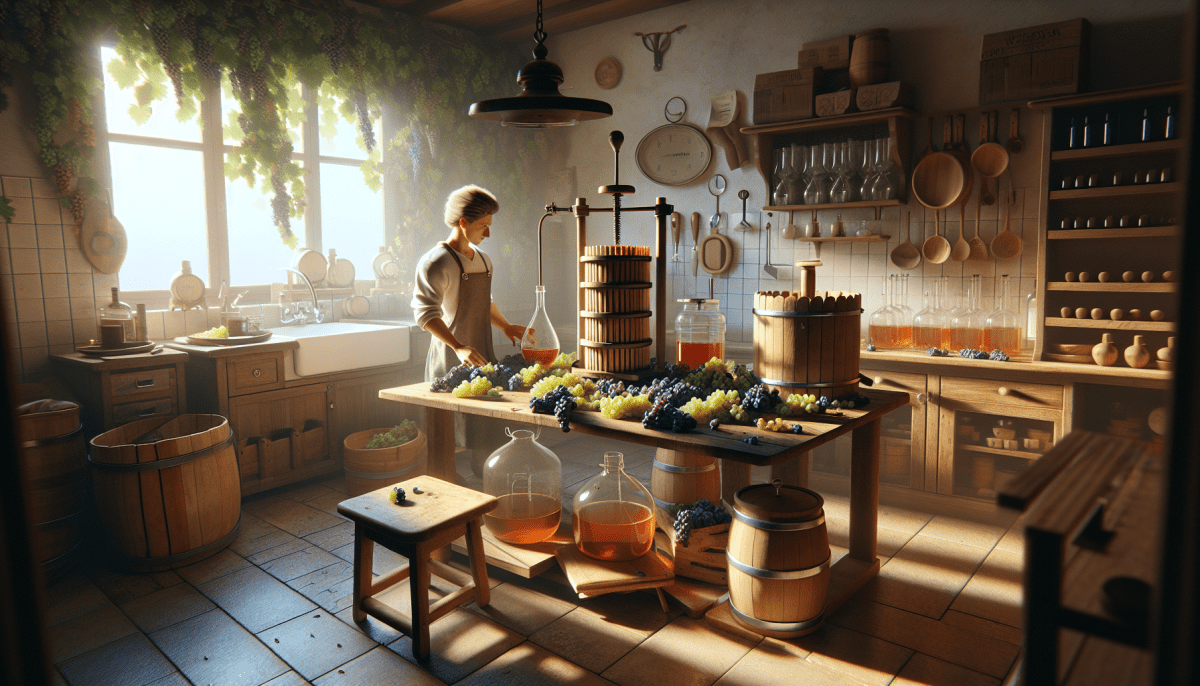If you've ever thought about making your own wine at home, you're in for an exciting journey! Home winemaking can be a fun and rewarding hobby that lets you craft unique flavors tailored to your taste. Plus, it’s a great way to impress your friends and family when you share your creations. Let’s explore how to get started!
First things first: you’ll need a good wine making kit. Most kits come with everything essential to kick off your winemaking adventure. Look for kits that include:
Once you have your kit, it's time to decide on the type of wine you want to make. Whether it's a bold red, a refreshing white, or even fruity rosé, your choice of grape juice or concentrate will significantly impact the final flavor. Don’t be afraid to experiment! Some kits even allow you to mix different types of juices to create a blend that's uniquely yours.
As you start the process, be sure to keep everything clean. Sanitation is key in winemaking to avoid any unwanted flavors. Follow the instructions carefully, and remember that patience is your best friend. Once the fermentation process kicks off, your wine needs time to develop its flavors—it can take several weeks or even months, depending on what you’re making.
Enjoy the process! Don’t hesitate to jot down notes about what you like or want to change for next time. Each batch is an opportunity to learn and improve. Plus, watching your friends sip on your homemade creation is just the cherry on top! With the right kit and a little bit of patience, you'll be on your way to enjoying the fruits of your labor—and maybe even impressing a few wine aficionados along the way.
Choosing the Right Wine Making Kit
Next, think about your experience level. If you’re just starting out, a beginner kit is a great choice. These kits usually come with everything you need, along with easy-to-follow instructions. If you’ve dabbled in wine making before and are ready to level up, look for a more advanced kit that offers additional accessories and options for customization.
Price is another important factor to consider. Wine making kits can range from budget-friendly to more premium options. While it’s tempting to go for the cheapest one, keep in mind that investing a bit more can mean better quality ingredients and tools. Look for kits that offer a good balance between cost and quality to get the most bang for your buck!
Lastly, don’t forget about the reviews! Checking out what other wine makers have to say about a kit can provide great insights. Look for feedback on ease of use, the flavor of the final product, and customer service experiences. This information can guide you in making a choice that you’ll be happy with.
Essential Tools for Your Winery
If you’re diving into the world of winemaking at home, having the right tools is key to making the process easier and more enjoyable. Here’s a quick rundown of the essential tools that every budding vintner should have on hand.
Fermentation VesselYour fermentation vessel is where the magic begins. You can opt for glass carboys or plastic fermentation buckets. Glass carboys are great for larger batches, while plastic buckets are lighter and often easier to clean. Just make sure whichever you choose has a tight-sealing lid to keep things safe and sound!
Siphoning EquipmentSiphoning tools, like a racking cane or auto-siphon, help you transfer your wine without introducing unwanted oxygen. This is super important because it helps keep your wine tasting fresh and clean. A little tubing goes a long way when you're moving your wine from one container to another.
HydrometerThis little gadget is essential for measuring the sugar content in your must (that's just the fancy term for grape juice before it turns into wine). A hydrometer helps you monitor the fermentation process and gives you a better idea of the alcohol content in your finished wine. It’s a must-have for those who love getting into the science of winemaking!
Bottling SuppliesOnce your wine is ready, it’s time to bottle it up! You’ll need clean bottles, corks, and a corker. Having a good corker makes sealing your bottles much easier and helps avoid messes. It’s like putting a nice little bow on your creation! And don’t forget labels – showing off your homemade wine is part of the fun!
Tips for Perfecting Your Homemade Wine
Making homemade wine can be a fun and rewarding experience! Here are some tips to help you perfect your wine-making skills and create a delicious final product.
1. Choose Quality Ingredients: Start with the best grapes or fruit you can find. Fresh, ripe fruit will give your wine its unique flavor. Local farmers' markets are great places to find high-quality produce. Don’t forget about the other ingredients like yeast and sugar; investing in good quality will pay off in the taste.
2. Sanitize Everything: Cleanliness is key in wine making. Make sure all your equipment - bottles, fermenters, and tools - are thoroughly sanitized. This step helps prevent unwanted bacteria from spoiling your wine and keeps your flavor profile intact.
3. Monitor Fermentation: Keep an eye on your fermenting wine. The fermentation process can take anywhere from a few days to a few weeks, depending on the type of wine. Use a hydrometer to track the specific gravity and taste test along the way to see how it's developing.
4. Be Patient: Good things come to those who wait! Once fermentation is done, let your wine age. This process enhances the flavors and improves its overall quality. It might be hard to resist, but patience is a virtue in winemaking!



